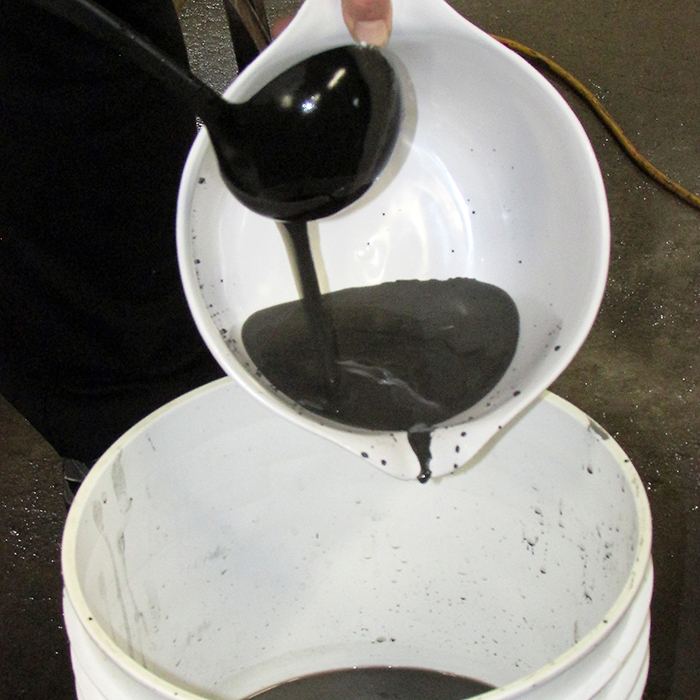
By Pam Wright
Local Journalism Initiative Reporter
When it comes to getting help from the province regarding the contamination of wells in Chatham-Kent, Kevin Jakubec has called it quits.
The Water Wells First founder is now looking to the International Joint Commission on the Great Lakes for assistance to solve the ongoing problem of fouled water in North Kent.
“It’s time to forget the Ontario government,” Jakubec said. “I’ve given up trying to get help. We’re way past that now.”
The long-time rural resident has been fighting on behalf of residents who can no longer drink the water from their wells – or in some cases even utilize them at all – due to contamination they claim is brought on by the construction and operation of wind turbines.
Earlier this year, the province released a synopsis of a 2,200-page All Hazard Report commissioned by the Ontario government on the issue, but Jakubec said the report falls short on many levels.
In fact, he had to file a Freedom of Information access request to obtain the document. It cost him $250.
He said the nature of the ongoing contamination relates to sediment coming into the well, but the report set a “ridiculously high level of sediment” to be collected in sampling which is “unrealistic and unfeasible.”
Jakubec also takes issue with the fact the report was compiled by Englobe, a company that consults for the wind industry.
“That raises serious questions on what the focus of the panel really was,” he added, noting the concern with heavy metal toxicity lies with the size of the particles, transported in the well water.
Jakubec said that it was determined years ago by a hydrogeologist Bill Clarke that the majority of the particles in the affected water wells was under one micron, meaning that the smaller the particle, the greater the concern.
“These particles are completely invisible to the naked eye,” Jakubec said, adding this was confirmed by American toxicologist Dr. William Sawyer.
It’s been a long and winding road for the well owners and members of Water Wells First. Prior to being elected in 2018, Premier Doug Ford promised he would address the matter, but that hasn’t happened, Jakubec said, even though Ford signed a document saying he would do a proper health hazard investigation and hold the polluter accountable.
That hasn’t occurred, Jakubec explained, adding Lambton-Kent-Middlesex MPP Monte McNaughton hasn’t addressed the issue fully despite having known about it since 2012.
“We got played for votes,” Jakubec added. “Absolutely.”
He also stated there has been no help from the Municipality of Chatham-Kent.
As far as the IJC goes, Jakubec is asking the international body to step in and do the research. On Sept. 28, Jakubec made a virtual presentation to the IJC American and Canadian commissioners.
“I hope they will take over and provide real answers to understand the nature of these well interferences and that this will lead to solutions,”Jakubec concluded.
The full scope of the affected wells in Chatham-Kent remains unknown, said Jakubec.
“All we do know is the All Hazard Report confirmed the ground water quality has deteriorated, supporting Bill Clarke’s previous findings.
In an opinion piece published in 2018 in Ground Water Canada, a trade magazine, by hydrogeologist Clarke, who investigated the Chatham-Kent wells, he said it is “obvious to me the main aquifer under the Chatham-Kent area in southern Ontario is being affected by the construction and operation of wind turbine towers.”
A total of 70 wells were examined in the All-Hazard Report, however none of the wells that were sampled were located in the former Dover Township, which has had the problem of fouled wells since 2012.
Jakubec said the All Hazard Report is simply a “liability shield to cover up the lack of due diligence” from the Ontario Ministry of Environment, Conservation and Parks.






